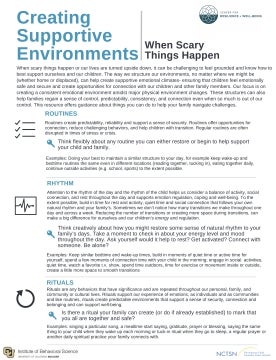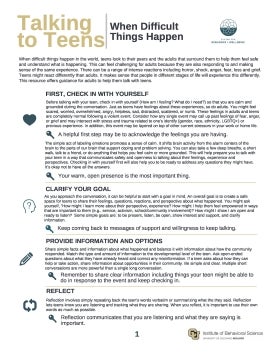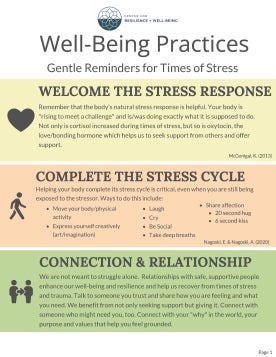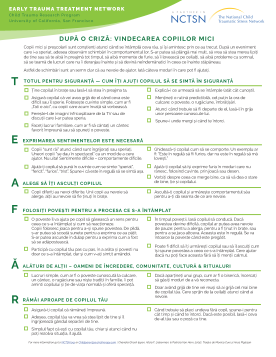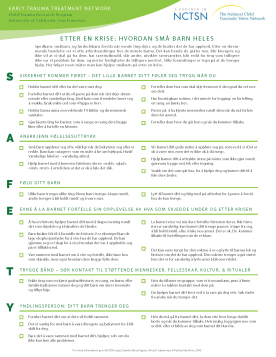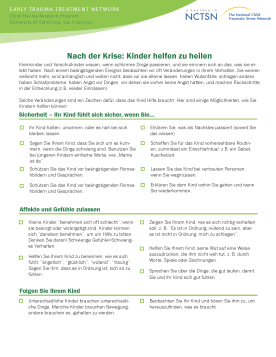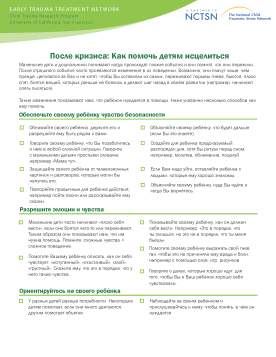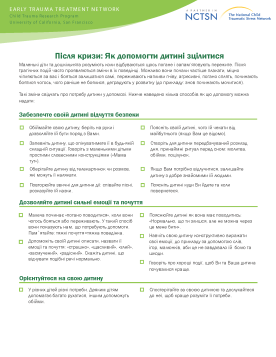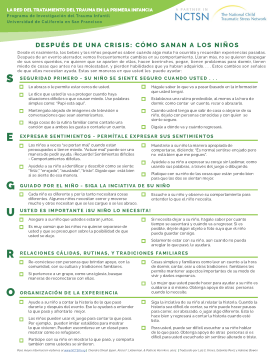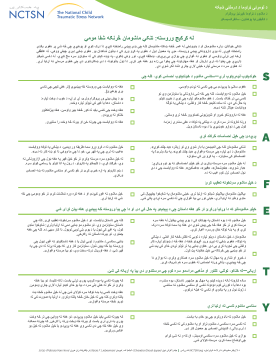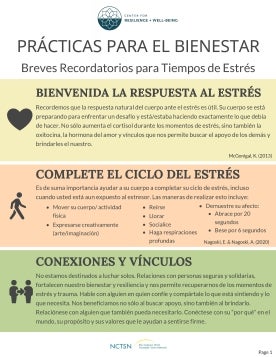
Prácticas para el Bienestar: Breves Recordatorios para Tiempos de Estrés
Amables recordatorios para tiempos de estrés: ofrece amables recordatorios de prácticas de bienestar en tiempos de estrés. Esta hoja informativa incluye información sobre la aceptación de la respuesta del cuerpo al estrés, completar el ciclo del estrés, conexión y relación, habilidades y prácticas emocionales, autoconciencia y atención.
